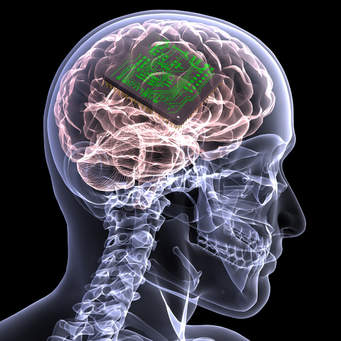514.223.5327
MAKE AN APPOINTMENTVisceral Memory
My daughter had her first day of school last week and she came home to recount how amazed she was that her fingers remembered her locker combination. She said she stood in front of it for a few minutes realizing that she could not remember it in her head but as she let her fingers move she was amazed at how her fingers knew what to do.
Has this ever happened to you? The body can express a memory that the mind cannot access. These aspects of our brain/body connection fascinate me and is one of the reasons that I became so interested in the brain and the nervous system. This is called visceral memory and while it is stored in the nervous system throughout the body, it is often experienced through our senses or emotions often without thoughts or words. Narrative memory – the kind of memory that is stored with words or stories happens (mostly) in the hippocampus of the brain. The hippocampus is very small and has much less storage capacity than the nervous system so we end up having many more visceral memories than we do narrative ones.
This comes up with clients frequently. They describe experiences where they felt something very intensely without any obvious connection to the current situation. Much of the time this can be innocuous or even pleasant but sometimes it can be disturbing. And if we do not understand what is happening, it can disturb us even more.
This is relevant for all us in that we typically underestimate how much previous experiences shape our perception of current situations. This can be why we take some things more personally than others and why others may react differently to an incident than we do.
Visceral memory is particularly relevant for anyone who has experienced a trauma because traumatic events are by nature against the grain of what is normal so they literally leave us speechless. Trauma also overwhelms the senses such that the body literally holds the score and then these feelings or sensations reappear in places that do not always make sense to us. These are like flashbacks but because they are experienced in the body, we call them “re-experiencing”. While the triggers can be subtle, if you look carefully, you can often identify them.
This is what we do in therapy. We help people understand their feelings and piece together a narrative that makes sense to them. We help them to monitor their emotions and the senses in the body and identify the elements in the current environment that may not be obvious at first but may have served as triggers for the visceral memory to have been activated. This act of sense-making can already provide relief since it reduces much of the confusion around them. But once we identify these, then we can heal the source of these traumas.
If you or anyone else you know need help to heal old wounds or traumas, our clinicians are trained to do so. You can reach us at 514 223 5327.
Written by: Dr. Shawna Atkins, PhD., OPQ, Psychologist

